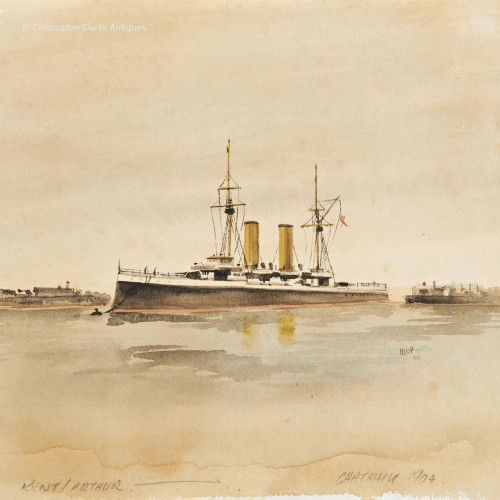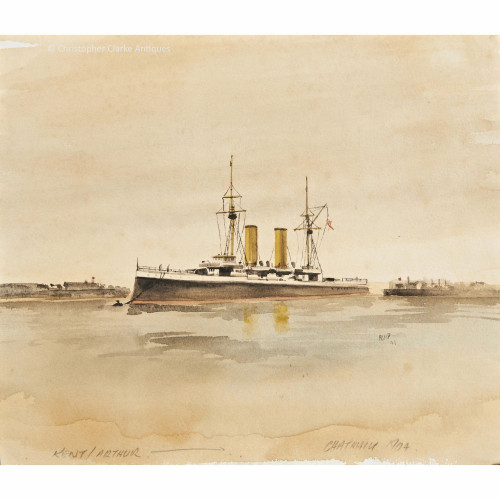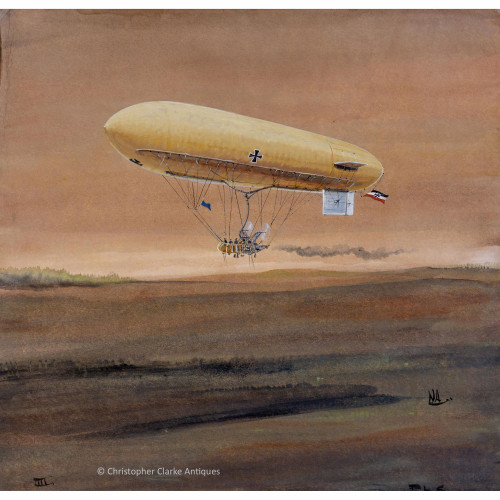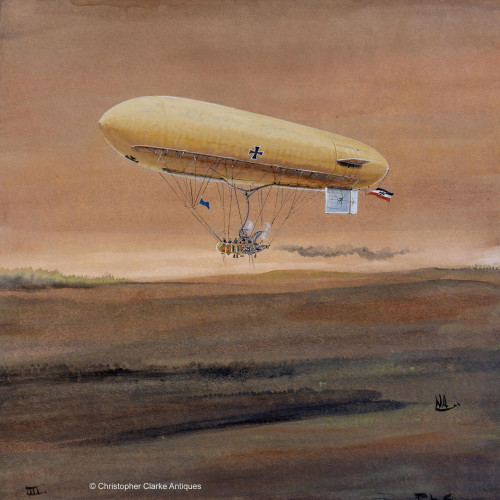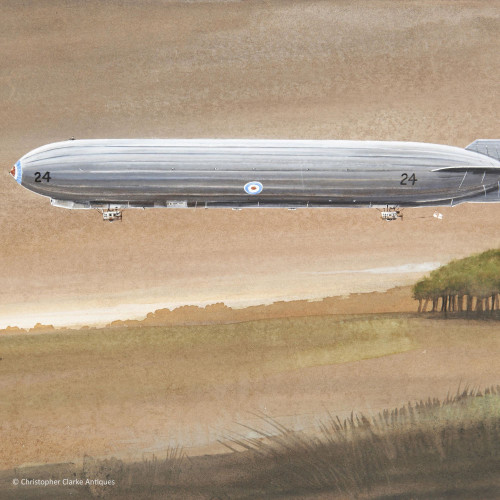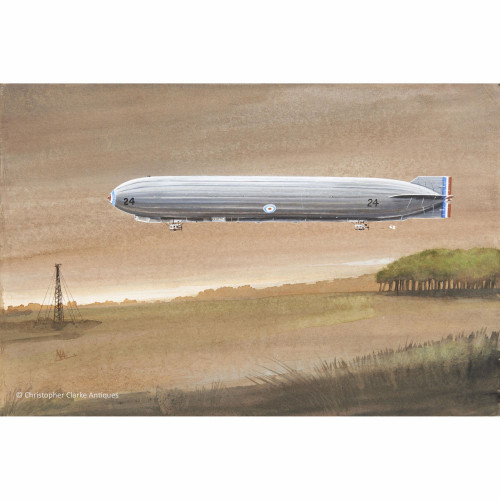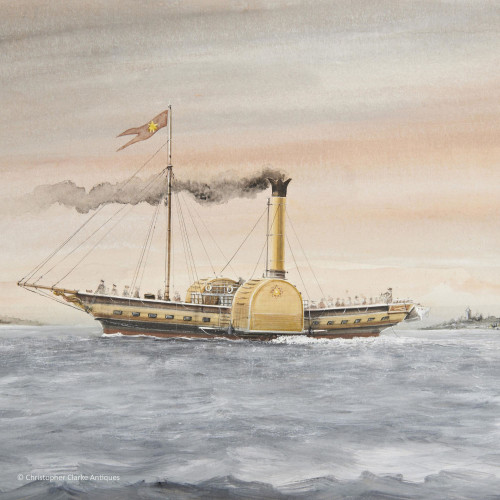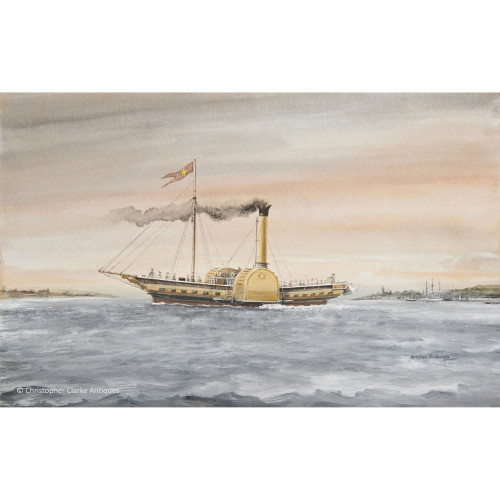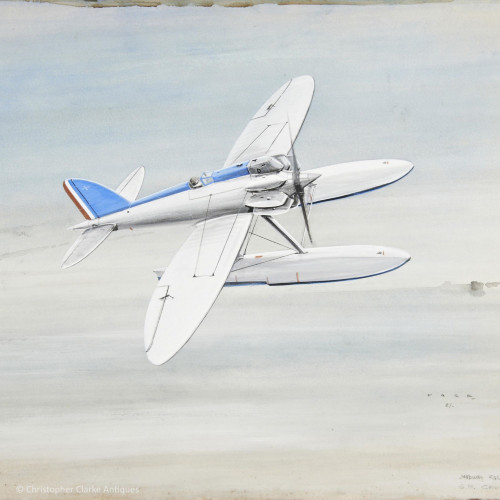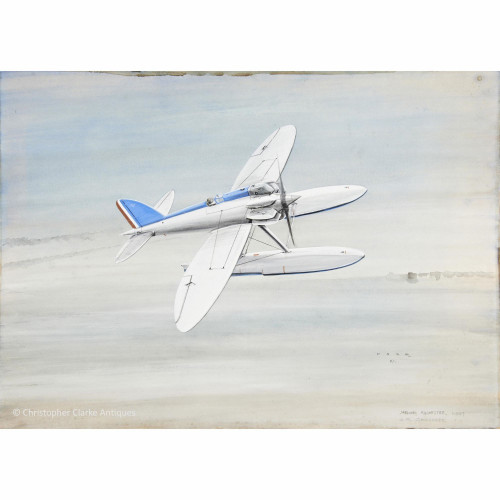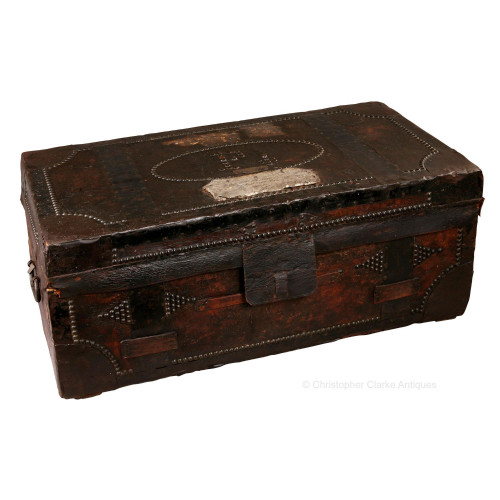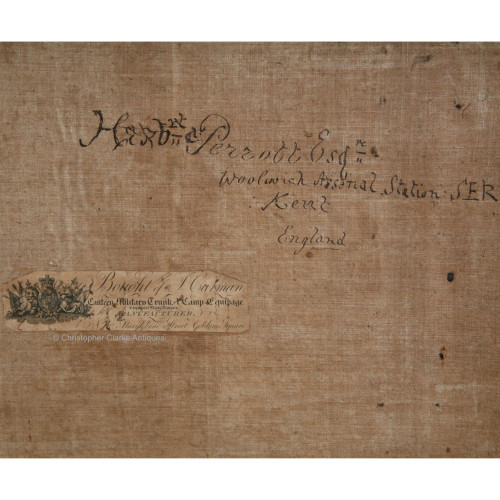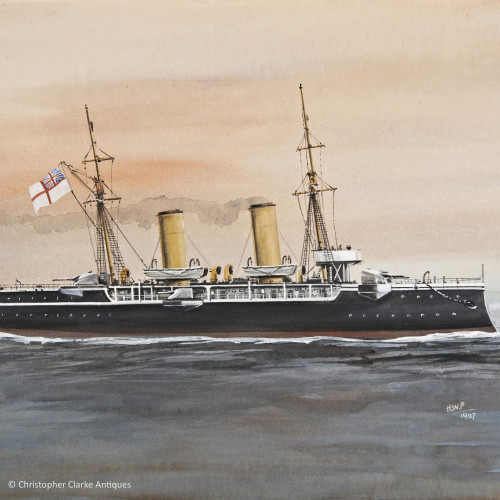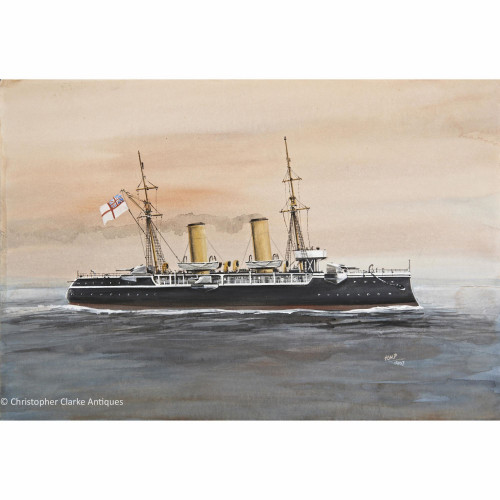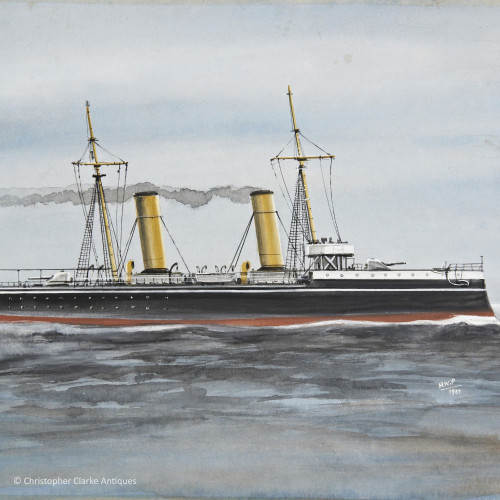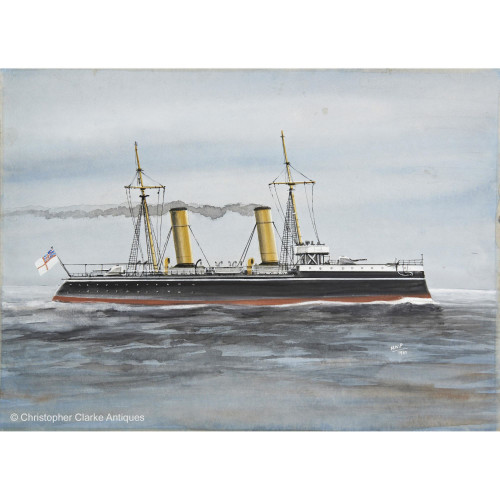Grand Shaft Barracks by William Heath
Grand Shaft Barracks by William Heath
A watercolour on card of Dover's Grand Shaft Barracks, with pen, ink and heightened with bodycolour.
The painting is signed by William Heath and dated 1836. Heath was born in 1795 and is probably known more for his satirical cartoons than his military paintings such as this. He did produce a number of pictures of the army though as well as famous battles and it is thought that his interest came from having been a soldier. This is unlikely though and we can find no mention of him in the army lists. Another picture of his, Take Up Your Bed And Walk !!! a cartoon of Wellington is known to collectors of campaign furniture.
The Grand Shaft was conceived in 1804 amidst the fears of Napoleon invading England. It was built by 1809 and provided a quick route between the fortifications on the Western Heights and the town below. Previously, the unreliable roads, that suffered during bad weather, were the only link. The shaft consists of three spiral staircases that climb 140 feet and allowed troops to quickly move between the cliff top and Dover town. It was said that later, they were used to give separate access to officers and their ladies, NCO and theirs and the enlisted men.
Heath spent some time working in Dover and other pieces from the same period by the artist include The Dover Packet (1835) and a panorama published by Thos. Rigden of Snargate St. entitled Wm Heath's Sketches of, in & about Dover (1836). This painting is signed and dated to the bottom left corner. It shows a scene a time long after the threat of invasion had passed with members of the 5th (Northumberland) Regiment of Foot preparing to parade on Snargate Street. They can be recognised as they were the only regiment with a red over white plume. They were stationed at Dover for just over a year departing in October 1836. The gatehouse and barracks at the foot of the Grand Shaft are shown with soldiers rushing out to line up. The entrance is between the Wesleyan Chapel, built five years previously, on the right and Hearn's on the left. The 1840 Pigot's Directory lists David Hearn as both a tobacconist and tailor at 100 Snargate Street. Tobacconist is written over the bay window and both the name Hearn and a Scotsman tobacco figure are shown above the door. Members of the public and a sailor are shown watching and the cliff top has further soldiers and people.
The picture is by a good artist, is well painted and evocative of a common scene of the day. The Grand Shaft is important in British military history and still attracts visitors today. This painting was formerly part of the Jack Webb Collection. Dated 1836.
Image Size is given. Framed Size is H 24 W 24 D 1/2 inches
Dimensions:
Dated 1836
Watercolour on card
England
William Heath, 1836
Military Painting
Jack Webb Collection
Watermark to bottom of mount
RELATED ITEMS







